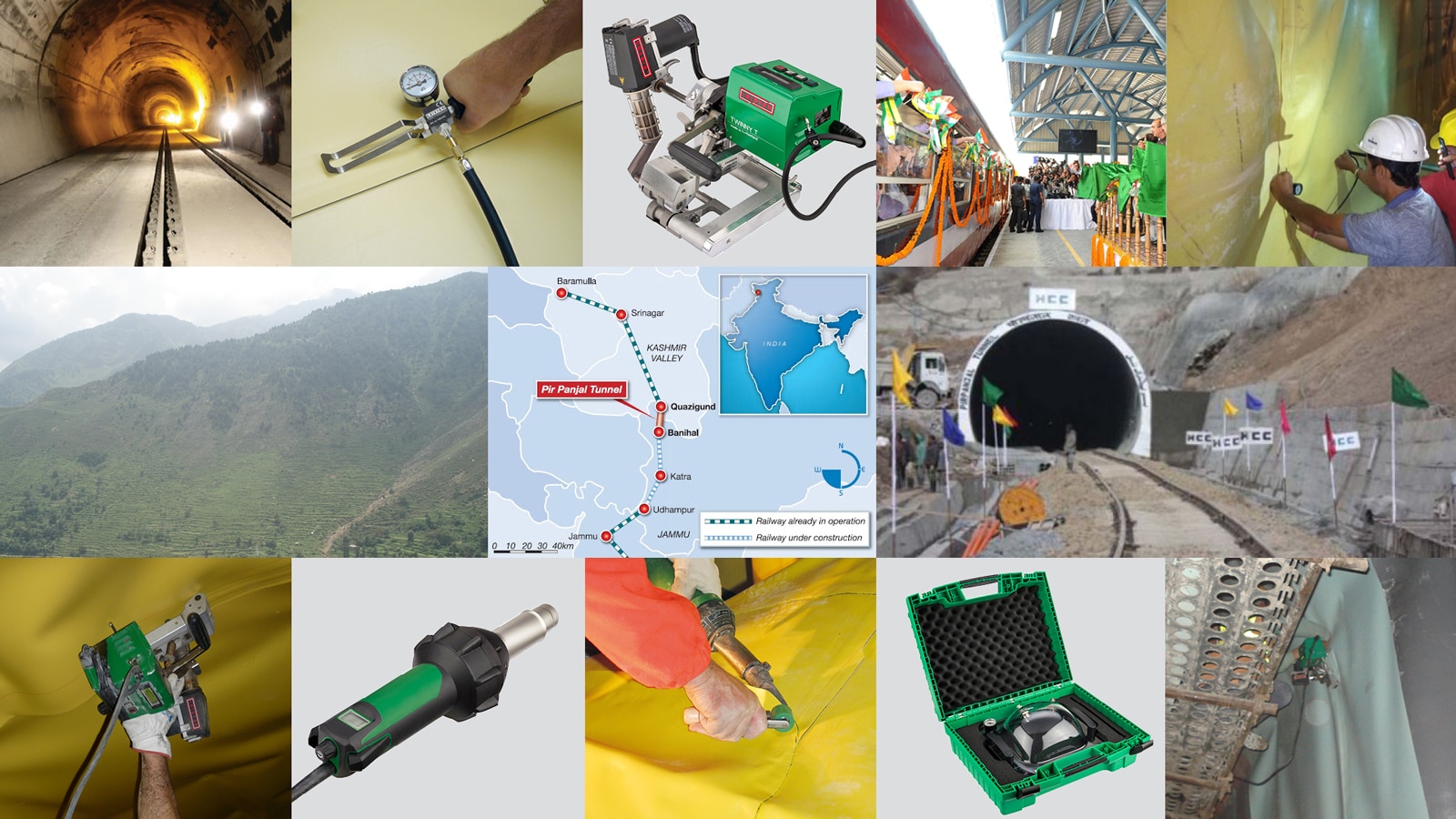Railway line through India to Kashmir – Leister Equipment Used in Tunnel Construction

In India, a railway line is being built to connect the city of Baramulla in the Kashmir Valley with the rest of the country. For this purpose, numerous tunnels have to be drilled and sealed. Various Leister devices and machines are used for this purpose.

The TWINNY T from Leister is ideally suited for welding the Geomembrane in tunnel construction due to its light weight. This is because the users need an automatic welding machine in the tunnel that enables them to carry out longer lasting overhead welding.

For smaller welding jobs, the construction workers rely on the handy Leister heat gun, TRIAC AT. They appreciate the robust and reliable heat gun because of its low weight of less than 1 kg / 2.2 lbs. and the ergonomic, soft-touch handle, because it allows them to work for longer periods of time with ease.

After the PVC geomembranes have been welded together, they are tested with Leister testing equipment such as B. the Test Needle tested whether the welds are tight.